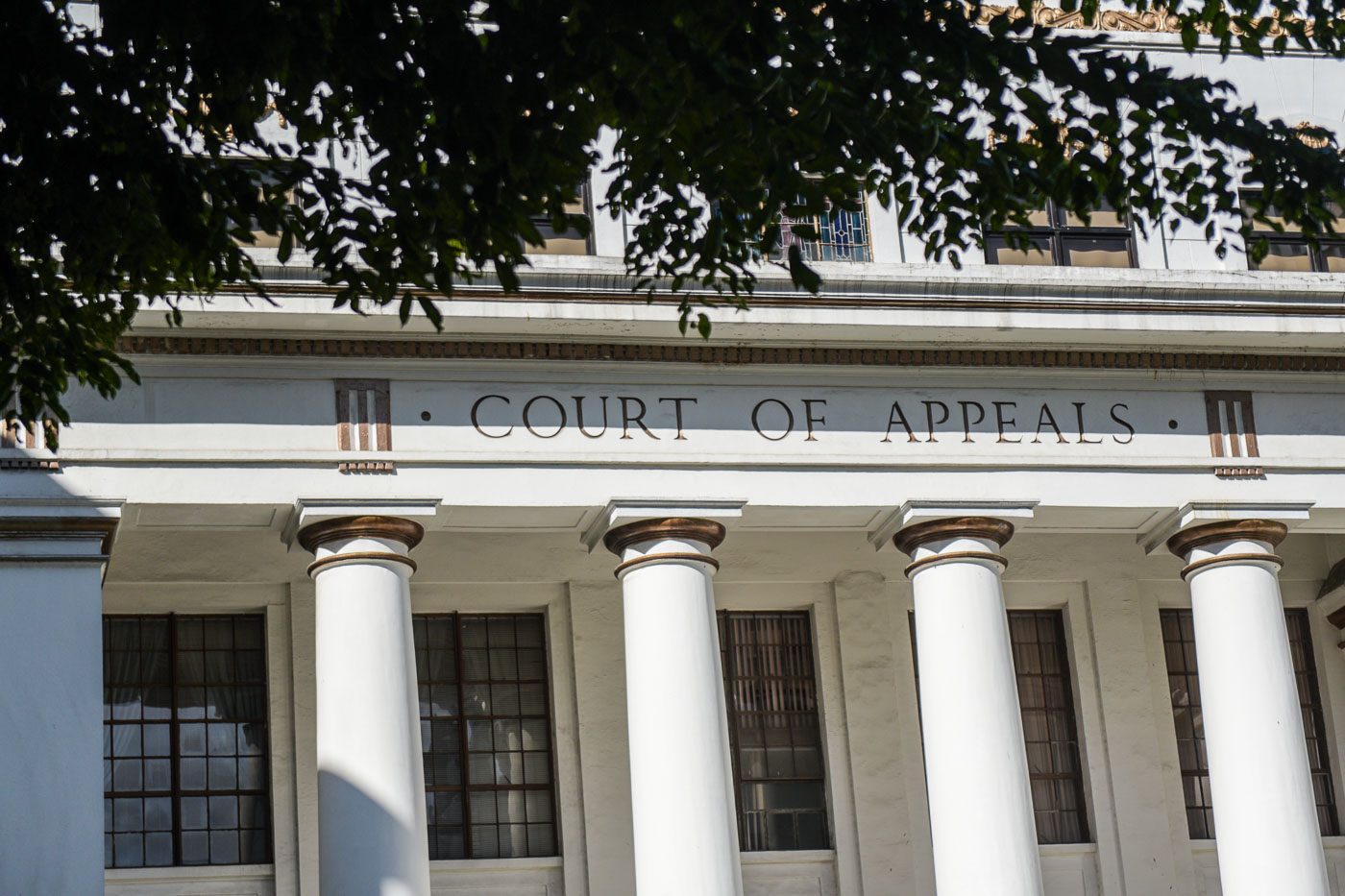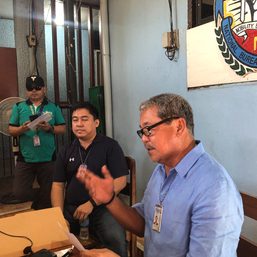SUMMARY
This is AI generated summarization, which may have errors. For context, always refer to the full article.

MANILA, Philippines – The Court of Appeals (CA) has ordered a Manila Regional Trial Court to exclude most of the prosecution’s evidence against 10 members of the Aegis Juris fraternity in relation to the Horacio “Atio” Castillo III hazing case.
Penned by Associate Justice Perpetua Susana Atal-Paño, the decision of the CA’s Eighth Division stated that items seized by cops at the Aegis Juris Law Resource Center (AJLRC) in Sampaloc, Manila, are considered inadmissible evidence as they were not included in the list of items stated in the warrant.
“The Branch of the Regional Trial Court, National Capital Judicial Region, City of Manila where Criminal Case No. RML-18-01545-CR is presently pending is accordingly ordered to suppress and exclude all evidence obtained from the Aegis Juris Law Resources Center which are not covered by Search Warrant No. 17- 27746, including evidence derived therefrom, and to make such orders as may be necessary to give effect to this order,” the CA said in a 74-page decision.
The evidence covered by the order includes the results of fingerprint examinations and DNA samples from various objects inside the AJLRC. The only admissible evidence are three paddles, a guitar case, and two pairs of socks offered as exhibits during the bail hearings of the said case.
“The exclusion extends to any and all evidence derived from the inadmissible objects such as the reports on the dactyloscopy examinations of the latent fingerprints lifted from miscellaneous objects in AJLRC, and the DNA examinations on the buccal swabs, in so far as these derivative evidence are ‘fruits of the poisonous tree,'” the appellate court said. (READ: TIMELINE: Death of Horacio Castillo III from alleged Aegis Juris hazing)
The CA decision, annulled and set aside the December 27, 2018 and January 13, 2019 ruling of Manila Regional Trial Court Branch 20 – but only because it had failed to order the suppression and exclusion of inadmissible evidence.

Because the police suspected the AJLRC to be the place where Castillo was hazed, they applied for a search warrant. Through the warrant, they were able to seize various items, including Castillo’s personal items noted by his parents as missing.
However, the CA noted that the ambiguity of the search warrant must be resolved in favor of the respondents.
“Because search warrants are derogations of a citizen’s natural and civil rights to privacy, they must necessarily be construed strictly against the State. In order to give life to the constitutional guarantee to protect all persons, including the accused in this case, against unreasonable searches and seizures, the ambiguity in SW No. 17-27746 must be resolved in their favor,” the CA said.
In 2017, 22-year-old Castillo died from alleged hazing injuries caused by members of the Aegis Juris Fraternity. Evidence showed that the fraternity members allegedly planned how to cover up the incident.
At least 17 persons were initially slapped with murder complaints in relation to Castillo’s death.
Search warrant is valid
Despite the exclusion of some of the evidence, the CA upheld the Manila court’s decision that the search warrant itself is valid.
“That said, notwithstanding the caption of the SW (search warrant) application which stated that it was for the offense defined and punished by ‘Section 28’ of R.A. No. 8049, there was never any doubt that the search warrant sought by the PNP was for its investigation into the possibility that the crime of hazing, as defined and punished by Sections 1 and 4 of R.A. No. 8049, respectively, was committed at the AJLRC,” the court said.
According to the CA, the evidence presented by investigators in seeking a warrant was sufficient to establish that the crime allegedly occurred at the AJLRC, and that some evidence in the alleged crime may be found in the area.
The respondents earlier claimed that the issuance of the said warrant has no legal basis and unreasonable because it failed to identify the exact address of the AJLRC. The fraternity members also said that the request cited an inexistent section of Republic Act No. 8049 or the Anti-Hazing Law.
The CA said these are “immaterial clerical errors.”
“It is intuitively unreasonable and unjust to hold that despite the clear language of the body of SW No. 17-27446, the mistake in its reference to the provisions of R.A. No. 8049 would invalidate the whole process,” the court said.
Meanwhile, the CA also ruled that it had not found grave abuse of discretion on the part of the Manila court for denying the bail petition of the respondents in a decision dated December 10, 2019.
“The Order dated December 10, 2019 is a product of a judicious and comprehensive review of the evidence before her and the accused cannot rightly complain that they were not heard,” the CA said. – Rappler.com
Add a comment
How does this make you feel?









There are no comments yet. Add your comment to start the conversation.